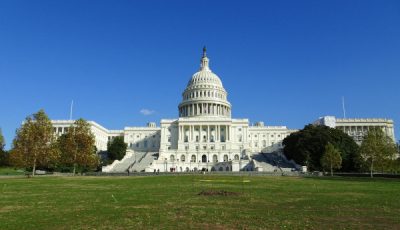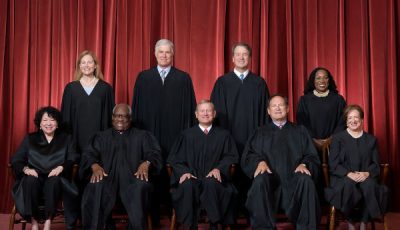Do Giuliani’s Claims Help Or Hurt Trump In The Stormy NDA Case?
 NEW YORK – In the wake of Rudolph Giuliani’s interview with Sean Hannity on Wednesday night, there has been a great deal of focus on the extent to which some of the claims and explanations Giuliani offered appear to contradict previous claims made by President Donald Trump and Trump’s long time personal attorney and self-described “fixer,” Michael Cohen, concerning the nondisclosure agreement negotiated with Stormy Daniels, and the payment to her associated with the agreement.
NEW YORK – In the wake of Rudolph Giuliani’s interview with Sean Hannity on Wednesday night, there has been a great deal of focus on the extent to which some of the claims and explanations Giuliani offered appear to contradict previous claims made by President Donald Trump and Trump’s long time personal attorney and self-described “fixer,” Michael Cohen, concerning the nondisclosure agreement negotiated with Stormy Daniels, and the payment to her associated with the agreement.
Among other things, Giuliani said of the $130,000 Cohen paid to Stormy Daniels that “the president repaid it.” While this statement doesn’t exactly contradict what Cohen has said about the payment, because Cohen has only said neither the Trump presidential campaign nor the Trump Organization reimbursed him for it, leaving open the possibility he was repaid by Trump himself, it still raises more questions than it answers.
For example, as recently as April 5, Trump told reporters aboard Air Force One he was unaware of the payment to Daniels and referred reporters to Cohen to answer their questions about the payment.
This becomes a very curious claim on Trump’s part, now that Giuliani has said Trump “reimbursed that over the period of several months.”
So, Trump didn’t know about the payment on April 5, less than one month ago, but reimbursed Cohen for it “over the period of several months”?
Giuliani offered an explanation (of sorts) for that apparent temporal disconnect, as well.
“Ah, he didn’t know about the specifics of it, as far as I know,” Giuliani said. “But he did know about the general arrangement, that Michael would take care of things like this. Like, I take care of this with my clients. I don’t burden them with every single thing that comes along. These are busy people.”
This might sound good as public relations spin, but from an ethical perspective, the notion of paying settlement sums and negotiating contracts on behalf of your client without telling that client about your actions is potentially problematic. Of course, as with most legal questions, whether the potential issue becomes an actual one is complicated and fact-dependent – and may include facts to which the public will never be privy.
“A lawyer is duty-bound to communicate with their client, and keep their client fully informed about legal matters they’re handling,” attorney Larry Walters told YNOT, while also noting “I do not know what communications occurred with the President and his attorneys, or when those communications occurred.”
“It will be very difficult to force either the President or Mr. Cohen to reveal the substance of those communications unless the President waives the attorney/client privilege,” Walters added. “So we may never know what was said between attorney and client.”
Attorney Karen Tynan was more definitive in her opinion that Giuliani’s claims in the interview have hurt Cohen and Trump’s case in the ongoing legal wrangling over the disputed NDA.
“It absolutely hurts Trump to claim he had no knowledge, or even that his knowledge was obtained after the fact, of the Stormy NDA,” Tynan said.
“It also hurts Trump that his story ‘floats’ or ‘shifts’ over time,” Tynan added. “Sometimes he says he knew absolutely nothing about it. Sometimes he says he paid the guy back after. Sometimes he says his attorney was on retainer and the money came from that. And on and on.”
As for whether the NDA remains enforceable, or Cohen’s handling of the negotiations and payment render it invalid, this too is a more complicated question than it might seem. Among other things, it could hinge on the question of whether Trump is a “party” to the NDA, or a “third-party beneficiary.”
If this sounds like it’s about to get even more confusing and dense with deeply baffling legalese, it’s because it is.
“The concept of third-party beneficiary to a contract allows a third party to force the actual parties to the contract to comply with its terms,” Walters explained. “It doesn’t allow the contract to bind the third party. A party is not bound by a contract unless that party agrees to it. So, the President would not be bound by the contract unless he actually agreed to it, in some way. He might, as a third-party beneficiary, be able to force the parties to comply with their confidentiality obligations.”
In an analysis published in March, attorney Anthony P. Fritz of the firm Herrig and Vogt wrote that Trump “may be considered a party to the settlement agreement according to agency principles under California law.”
Fritz also suggested that Trump’s lack of direct, actual knowledge of Cohen’s work on his behalf may not be a problem, after all, for Cohen or Trump.
“Both principal and agent are deemed to have notice of whatever either have notice of and ought, in good faith and the exercise of ordinary care and diligence, to communicate to the other,” Fritz wrote. “An attorney practicing law in California or New York is ethically required to advise his or her client of a settlement offer or a settlement agreement affecting the client’s rights and duties. Under agency principles, Michael Cohen’s knowledge of the settlement agreement may be imputed to Trump, regardless of whether Mr. Trump had actual knowledge of the settlement agreement and its terms when it was signed.”
Of course, on social media and elsewhere, other observers have suggested Giuliani’s interview did much worse than impact negatively on the Stormy NDA case. Among the most serious (yet, somehow, most humorous as well) of these suggestions came in a tweet from attorney and Popehat.com blogger Ken White:
Protip for federal criminal defense lawyers: when discussing a case on live television, make every effort to avoid accusing your client of money laundering.
— LoomingCrisisHat (@Popehat) May 3, 2018
“We’ve gone so far down the rabbit hole on this NDA and lawsuit, I don’t know how a judge is going to rule on the interesting legal questions, but I can say that there is no end in sight for Trump,” Tynan said. “A wise old lawyer told me once, ‘When you are explaining, you are losing.’ Here, Trump and his band of merry talking heads are constantly having to explain and answer questions. They are losing.”
By now, I’m sure you can see why the question of where this whole Stormy/Trump mess goes from here is well beyond my ability to predict – or even to understand, for that matter.
I suppose, as the President himself is so fond of saying, “we’ll see.”













